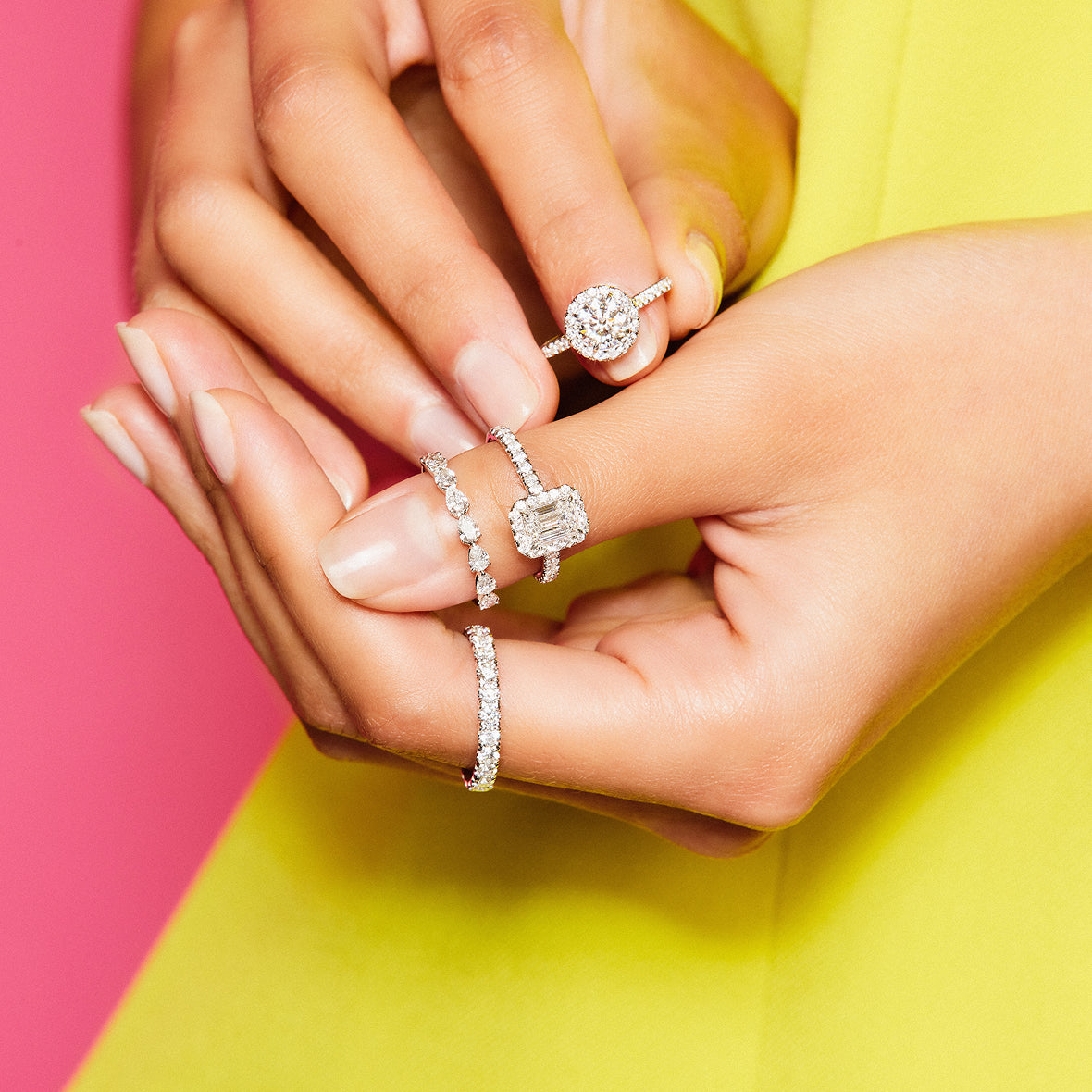The Diamond Clarity Scale
It can help you choose a diamond that offers good value for what you’re willing to spend.
Flawless (FL)
Diamonds with no internal or external flaws under 10x magnification, extremely rare and valuable.
Internally Flawless (IF)
Diamonds with no internal flaws visible under 10x magnification, very rare and valuable.
Very, Very Slightly Included (VVS1 and VVS2)
Diamonds with minuscule inclusions that are difficult for a skilled grader to see under 10x magnification.
Very Slightly Included (VS1 and VS2)
Diamonds with minor inclusions that are noticeable under 10x magnification but typically not to the naked eye.
Slightly Included (SI1 and SI2)
Diamonds with minor inclusions that are noticeable under 10x magnification, some are detectable to the naked eye.
Included (I1, I2, and I3)
Diamonds with apparent inclusions that are visible under 10x magnification, which may affect transparency and brilliance.






